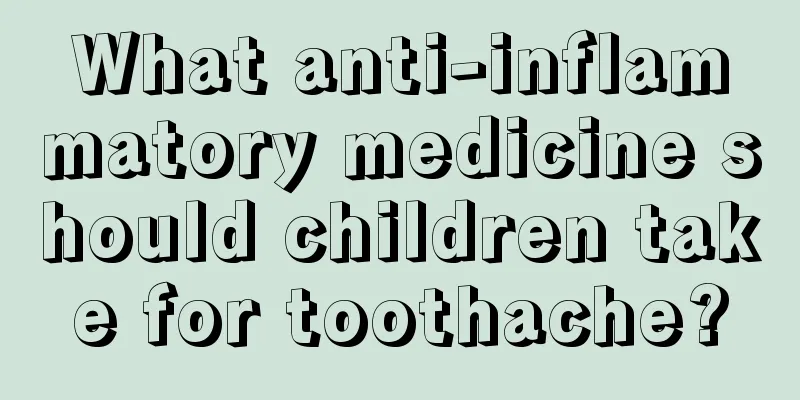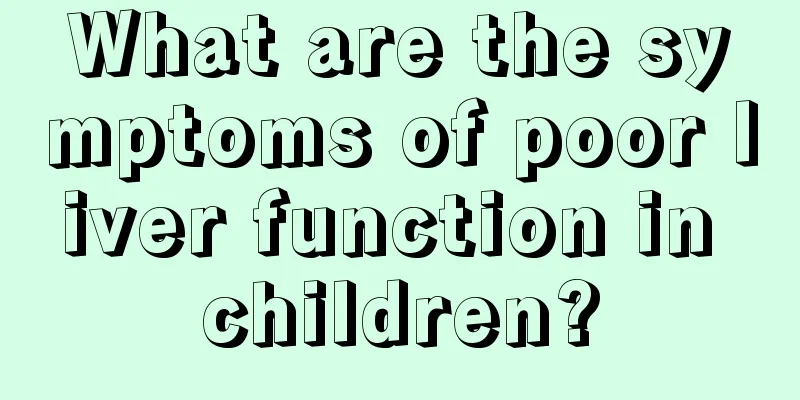What to do if your baby is born with low blood sugar

|
Maybe you think that hypoglycemia only occurs in many adults. In fact, many babies will also have hypoglycemia after birth. This is neonatal hypoglycemia, which refers to a decrease in blood sugar concentration. There may be many complications. Hypoglycemia can be said to be an independent disease, but it may also show other complications, which require special attention and reasonable methods of adjustment. content Neonatal hypoglycemia is when the blood sugar level in a newborn baby falls below the required level. It often occurs in premature infants, small-for-term infants, and infants of diabetic mothers, and is more common in neonatal hypoxia asphyxia, scleredema, and infectious sepsis. Severe persistent or repeated hypoglycemia can cause damage to the central nervous system. Neonatal hypoglycemia can be an independent disease or a clinical manifestation of other diseases. Causes Temporary hypoglycemia 1. Insufficient glucose storage is mainly seen in: ① Premature infants and infants small for gestational age: liver glycogen storage mainly occurs in the last 3 months of pregnancy. Therefore, the younger the gestational age, the less glycogen storage and the lower the enzyme activity in gluconeogenesis; ② Perinatal stress response: hypoxia and acidosis increase catecholamine secretion, stimulating increased liver glycogenolysis, and anaerobic glycolysis increases glucose utilization; ③ Others: such as hypothermia, sepsis, congenital heart disease, etc., which are often caused by insufficient calorie intake and increased glucose utilization. 2. Increased glucose utilization (transient hyperinsulinemia) is mainly seen in: ① Infants of diabetic mothers: due to excessive blood sugar in the womb, temporary hyperinsulinemia occurs, and the blood sugar supply from the mother is suddenly interrupted after birth; ② Rh hemolytic disease: red blood cell destruction causes the release of glutathione, which stimulates an increase in insulin concentration. Persistent hypoglycemia 1. Hyperinsulinemia: mainly seen in islet cell hyperplasia, Beckwith syndrome, and islet cell adenoma. 2. Endocrine defects: such as congenital pituitary insufficiency, cortisol deficiency, glucagon deficiency, growth hormone deficiency, etc. 3. Genetic metabolic diseases: ① Abnormal glucose metabolism: such as glycogen storage disease type I and type III; ② Fatty acid metabolic diseases such as medium-chain acyl-CoA dehydrogenase deficiency; ③ Amino acid metabolism defects: such as branched-chain amino acid metabolism disorders, leucine metabolism defects, etc. Clinical manifestations Most people with hypoglycemia lack typical clinical symptoms, and the clinical manifestations of children with hypoglycemia vary depending on the degree of hypoglycemia. The clinical manifestations of the same hypoglycemia level vary greatly. In a minority of cases, symptoms may manifest clinically as poor response, sweating, pallor, chronic cyanosis, feeding difficulty, drowsiness, apnea, cyanosis, abnormal crying, tremors, shaking, and even convulsions. examine Blood glucose measurement The blood sugar level of high-risk infants should be monitored within 1 hour after birth, and then rechecked every 1-2 hours until the blood sugar level stabilizes. Persistent hypoglycemia Blood insulin, glucagon, T4, TSH, growth hormone, cortisol, blood and urine amino acids and organic acids should be measured as appropriate. Hyperinsulinemia Pancreatic ultrasound or CT scan can be performed, and corresponding examinations can be done when glycogen storage disease is suspected. |
<<: What are the symptoms of vitamin d deficiency in children
>>: What are the symptoms of herpes in the throat of children?
Recommend
What are some tips for getting your child to sleep?
We all know that children nowadays are rather nau...
Treatment for separation anxiety in young children
When children reach the age to go to kindergarten...
What should I do if my child vomits in the middle of the night?
Many people have had symptoms of vomiting, but mo...
What to do if the baby chokes when drinking water
If you want to take better care of your baby and ...
Small red spots on the child's face after fever
The small red spots that appear on a child's ...
What should I do if my child has pulpitis?
The phenomenon of pulpitis in children is relativ...
Should newborns be wrapped when sleeping?
People are very careful when taking care of newbo...
Why do children get metabolic diseases?
If our body's metabolic function is abnormal,...
When is the best time for children to supplement zinc?
In our daily life, we eat a lot of food every day...
Why is my two-month-old baby easily awakened when sleeping?
A two-month-old baby is very small and very worth...
After circumcision surgery in children
After a child's circumcision, parents should ...
Does pacifier have any effect on children?
Nowadays, many mothers actually insist on breastf...
What foods should children eat less? Eat less of these 7 foods
Parents need to pay attention to their baby's...
What are the symptoms of cervical spondylosis in children?
With the accelerated pace of life, many young peo...
What are the styles of children's hair
Many mothers are pleased and proud of their child...









